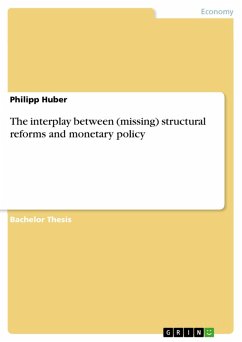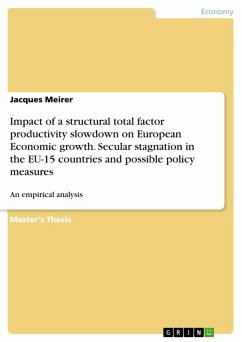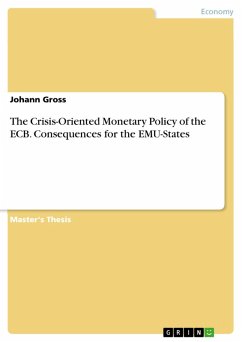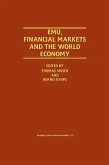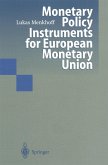Bachelor Thesis from the year 2018 in the subject Economics - Macro-economics, general, grade: 1,3, University of Frankfurt (Main) (House of Finance), language: English, abstract: Many well-known economists argue to achieve a prospering economy; it is crucially important to have an efficient collaboration between a country's monetary policy, concerning a stable currency and inflation rate, as well as a proper fiscal policy, including structural reforms and governmental spendings. In the backdrop of this opinion, the European Monetary Union (EMU) was established in 1999, in which the monetary policy for several countries is centralised in one institution, the European Central Bank (ECB). This is a massive achievement, as for most of Europe's history, it has been at war with itself, which did not foster any trade or other kinds of economic co-operation. Europe was always a continent of trade barriers, tariffs and different currencies. Therefore, doing business across borders was always highly sluggish, and in the light of all these obstacles, it tended to stifle economic growth. After World War II has left Europe in a devastating condition, the natural choice to rebuild the continent was to remove these ancient barriers. By implementing the Euro in 1999, this went even a step further. Domestic currencies ended to exist as well as the very individual monetary policies. In consequence the national central banks shifted the control to the newly formed ECB. The Eurozone had now one unified monetary policy, but still many different fiscal policies in the respective member states. Before the Euro was born, countries like Greece or Italy not only had to pay high interest rates to borrow money, they also could only lend a limited amount, as lenders were not comfortable providing them too many credits. However, as they became members of the European Monetary Union, the tables turned, because big security providers, like Germany, were now part of it.
Dieser Download kann aus rechtlichen Gründen nur mit Rechnungsadresse in A, B, BG, CY, CZ, D, DK, EW, E, FIN, F, GR, HR, H, IRL, I, LT, L, LR, M, NL, PL, P, R, S, SLO, SK ausgeliefert werden.

